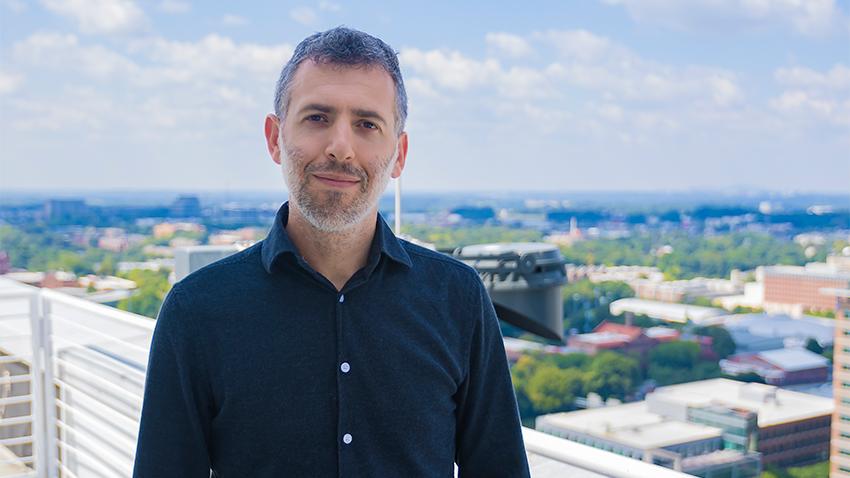
Knowing is Half the Battle: New Faculty Explores the Human Dimension of Cybersecurity
Cyberattacks and data breaches have become so commonplace that it's easy to overlook the lasting negative impact everyday people can experience long after the software patches are applied.
This human dimension of cybersecurity is a growing subfield that political scientist Ryan Shandler will continue studying and teaching as one of Georgia Tech’s newest assistant professors in the School of Cybersecurity and Privacy (SCP).
Before joining the Institute, Shandler conducted a series of experiments that exposed tens of thousands of participants to simulated cyberattacks under strictly controlled conditions – all to explore the societal and political fallout from online attacks and breaches.
“Cyberattacks are political events that we cannot ignore,” said Shandler. “It is shortsighted to look only at how technology failed and ignore the effects of cyber threats on public trust.”
In a study published earlier this year, Shandler and his co-authors studied the psychological distress felt by cyberattack victims. They found that cyberattacks generate the same amount of psychological distress as a physical terrorist attack. In the wake of such an attack, the team found there is a strong public demand for a physical military response.
Understanding the gravity of this situation is something that has been missing from traditional information security education and to meet this need Shandler developed a brand-new graduate course to directly address the human dimension of cybersecurity. Students like Juan Villarreal are deeply invested in understanding the impact of cyberattacks from the point of view of human psychology.
“Most of the teachings and business reporting on cybersecurity focus on the technical aspects for defense, offense, or business impacts,” Villarreal said. “This course provides a unique perspective on how individual perceptions and attitudes are influenced by a cyberattack that may or may not have impacted them directly.”
Injecting this new approach into the curriculum is precisely the approach Shandler had in mind when developing this course. The positive feedback from his students is encouraging him to look at other ways to innovate cybersecurity education and create more classes.
“The students are deeply engaged and responsive to this new perspective,” the new faculty said. “A genuine commitment to cybersecurity demands an interdisciplinary framework. By broadening students’ perspectives to incorporate political, psychological, and technical elements, the school is setting a paradigm shift in motion for cybersecurity education.”
Shandler was a postdoctoral fellow with the Nuffield College and the Blavatnik School of Government at the University of Oxford before joining SCP. He holds a Ph.D. from the School of Political Sciences at the University of Haifa and a Bachelor of Laws from the University of Melbourne. The British Journal of Political Science, Journal of Peace Research, Public Opinion Quarterly, Journal of Global Security Studies, Contemporary Security Policy, Journal of Cybersecurity, USENIX FOCI, and others have published his Shandler’s research.


